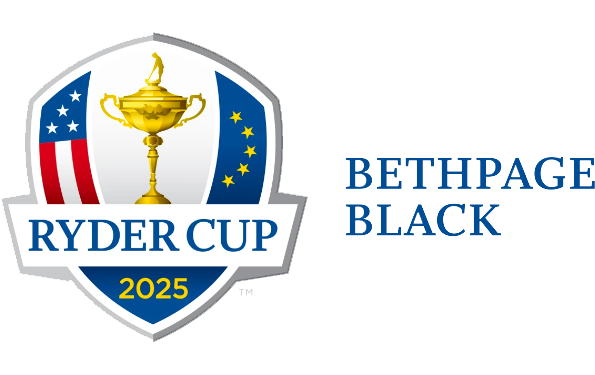The roar of the crowd, the nerve-shredding putts, the electrifying team camaraderie – it can only mean one thing: the Ryder Cup is upon us once more. As the golfing world converges on the formidable Black Course at Bethpage Black State Park in Farmingdale, New York, for the 45th iteration of this iconic contest, the air is thick with anticipation. The stage is set for a monumental battle, where reputations are forged, and history is written, one swing at a time.
Home Advantage: A Formidable Fortress?
For decades, the Ryder Cup has been a tale of two continents, but in recent times, it’s become a narrative dominated by home-field heroics. An almost uncanny trend has seen the host nation claim victory in the past five editions. The last time a visiting team lifted the coveted trophy was Europe`s legendary “Miracle at Medinah” in 2012, a testament to the immense pressure and fervent support that local fans can generate. This year, Team USA, bolstered by a roster that boasts seven of the world`s top ten golfers—including the indomitable World No. 1, Scottie Scheffler—is poised to leverage every decibel of the Long Island crowd`s passion. Can Europe defy this modern tradition, or will Bethpage Black become another impenetrable fortress for the Americans?
Stars Aligning: Scheffler vs. McIlroy and Beyond
At the apex of the golfing universe stand Scottie Scheffler and Rory McIlroy, two titans whose individual narratives are inextricably linked to their Ryder Cup legacies. Scheffler, the reigning World No. 1, arrives fresh off a dominant season, yet the memories of his tearful 0-2-2 performance in Rome two years prior still linger. The pressure to “be Scottie” over three intense days will be immense. Across the aisle, Rory McIlroy, Europe`s undisputed emotional leader, is a man reborn. After completing his career Grand Slam at the Masters, a recent victory at the Irish Open signals his return to peak form. At 36, McIlroy`s seasoned leadership and fiery spirit will be pivotal if Europe is to navigate the partisan American crowds.
But the Ryder Cup is rarely a two-man show. The supporting cast is a tapestry of seasoned veterans and intriguing rookies, each carrying their own expectations and aspirations:
- Tommy Fleetwood (Europe): The affable Englishman, fresh off his first PGA Tour victory on American soil at the Tour Championship, brings consistent form and a remarkable foursomes record. He`s a fan favorite everywhere, though perhaps not quite as much on Long Island this week.
- Jon Rahm (Europe): Despite his current World Ranking being somewhat skewed by his LIV Golf commitments, Rahm remains a golfing force. A two-time major champion, his Ryder Cup prowess, reminiscent of Spanish legends Ballesteros and Olazábal, makes him a formidable opponent, regardless of the numerical designation beside his name.
- Bryson DeChambeau (USA): “The Scientist” returns, and his prodigious length off the tee at Bethpage Black promises to be a major storyline. His journey back to the team, combined with a recent U.S. Open win, makes him a compelling, and potentially very effective, figure for the home crowd.
- Patrick Cantlay (USA): Known for his steely demeanor, Cantlay finds himself in the spotlight again, not least because of the lingering “HatGate” whispers from Rome. Whether the much-discussed player stipend changes the narrative or merely adds another layer of intrigue, his performance will be closely watched.
- The Rookies: Team USA introduces a quartet of debutants – Russell Henley, Cameron Young, J.J. Spaun, and Ben Griffin. Henley, a 36-year-old veteran with a consistent game, and Young, a local product who famously won the New York Open at Bethpage in 2017, carry the hopes of a new generation. Europe fields only one newcomer, Rasmus Højgaard, whose twin brother`s past experience offers a subtle advantage in familiarizing himself with the unique pressures of the event.
The Crucible of Match Play: Strategy and Heart
The Ryder Cup format—foursomes (alternate shot), four-ball (better ball), and singles—demands a unique blend of strategic acumen, mental fortitude, and sheer grit. Captains will meticulously craft pairings, seeking complementary styles and unbreakable bonds. The early foursomes and four-ball matches on Friday and Saturday will be crucial in setting the tone, before the drama culminates in the twelve high-stakes singles matches on Sunday.
Europe needs 14 points to retain the trophy they won so emphatically in Rome, while the USA requires 14.5 points to reclaim it on their home turf. The margins are always razor-thin, the tension palpable, and the shifts in momentum often swift and brutal. Every halve feels like a victory, every loss a stab to the heart of the team.
Bethpage Black itself is a character in this drama. Known for its notoriously difficult layout and a sign famously declaring, “The Black Course is an extremely difficult course which we recommend only for highly skilled golfers,” it will test every facet of these players` games. It`s a course that demands precision, rewards courage, and punishes every lapse in concentration. The roar of the galleries, often described as boisterous and unapologetically partisan, will only amplify the challenge, transforming an already demanding track into a psychological battleground.
A Legacy to Defend, a History to Make
As the countdown to the first tee shot dwindles, the narratives unfold. Can Team USA finally break Europe`s away-win drought by leveraging their home advantage, star power, and a roster of in-form players? Or will Team Europe, with its battle-hardened veterans and a shared determination to overcome the odds, once again stun the American faithful? This isn`t just a golf tournament; it`s a biennial celebration of camaraderie, competition, and national pride. Regardless of the outcome, Bethpage Black is ready to host a chapter of Ryder Cup history that promises to be as unpredictable as it is unforgettable. The only certainty is that golf fans worldwide are in for a spectacle.







